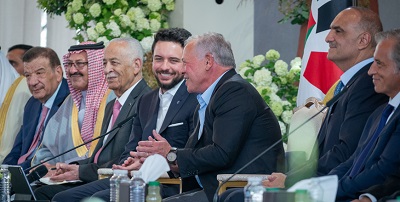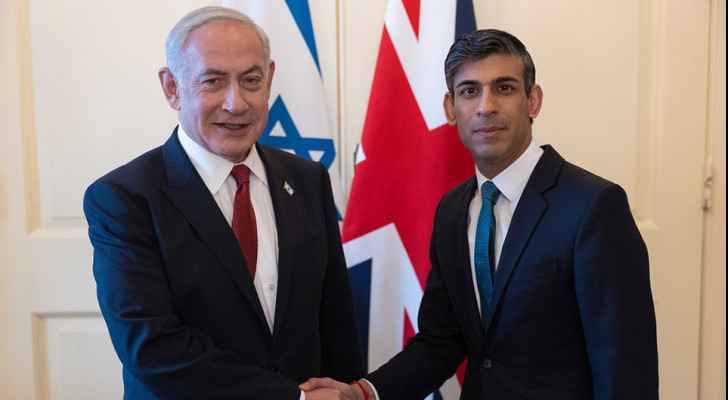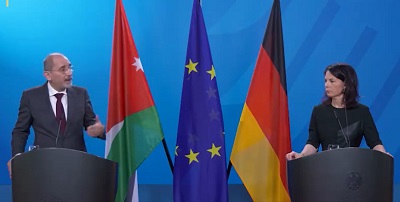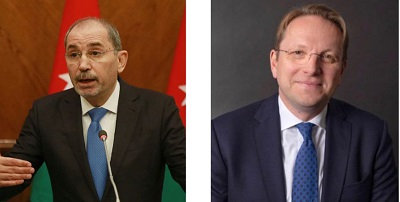Erdogan’s Golden Days are Over - By Ghassan Charbel, Asharq Al-Awsat
Ghassan Charbel
In August 2014, I paid a visit to President Abdullah Gul days after his term ended. He was very cordial when we used to visit Ankara and Istanbul for talks with Erdogan and Davutoglu to decipher the Turkish policy in the region. It was no secret that Gul was president during “Erdogan’s term” just as Dmitry Medvedev was president during Vladimir Putin’s term. Experience has shown that the telephone of a leader stops ringing when he loses his title or when he leaves office after losing favor with the “strong man” in the country.
We discussed the Syrian crisis that was raging at the time. Gul avoided talking directly about Erdogan’s policy there or about his relations with him. I had the feeling the man wanted to wait and avoid getting embroiled in an early battle with his old friend. Gul realized that he was being vague during our meeting, which is why he said to me as I was leaving: “At any rate, a severe tone does not solve problems, neither here no abroad.”
The message was clear. He was objecting against Erdogan’s way of managing affairs with countries. He had shifted his tone from saying “my friend Bashar” to describing him as the “dictator in Damascus.” Perhaps Gul was seeking to avoid an early clash with a man who was not known for being forgiving of people who abandon his ship and later hold the captain responsible for crashing it into rocks.
I again pondered Erdogan’s policy in Syria after three years. In September 2107, I traveled to the Kurdistan Region and visited the counter-terrorism headquarters in Erbil where I met several ISIS prisoners, including a member from each of China, Kazakhstan and the United States. They all had similar stories in that they came to Turkey and networks arranged for their transport to ISIS’ “caliphate”. I suspected that Turkey was playing with fire when it opened its border to thousands of roaming fighters under the pretext of toppling the Assad regime.
It never occurred to Erdogan at the time that he was inadvertently offering a favor to the Russian president, who would rather confront extremists in Syria than pay the price for confronting them in Russia and its neighboring countries.
Another example of Erdogan’s hasty policies: In December 2008, he received then Israeli Prime Minister Ehud Olmert. During the talks, he frequently went to a side room to contact Assad, hoping to transform the meeting into a tripartite summit. The Syrian leader did not attend and demanded that Israel make a public declaration that it would withdraw from the Golan Heights. Erdogan was banking at the time on Damascus’ desire to end the isolation brought about after it was forced to withdraw its troops from Lebanon in 2005 in wake of the assassination of former Prime Minister Rafik Hariri. Prior to that, Istanbul had hosted a Syrian and an Israeli delegation for indirect negotiations. Davutoglu moved back and forth between the two delegations with various ideas and proposals. The negotiations failed and Olmert departed the city. The Gaza war erupted soon after.
Erdogan benefited immensely from the improvement in his country’s economy. He benefited even more when western powers believed that the “Turkish example could act as a bridge to reach reconciliation between Islamic peoples and the values of modernity.” Ankara boasted at the time of its ability to talks to all parties and opted to ignore Iran’s expansionist agenda in the region, believing that it was merely a “competitor”, not a “rival or enemy.”
The situation changed when the fires of the “Arab Spring” broke out and when what observers described as “a Turkish-Qatari agenda, with a Muslim Brotherhood trend” began to emerge in Egypt, Libya and Syria. Observers in Europe noticed that officials were quick to praise the Turkish example without gathering enough information about Erdogan’s deep policies that were concealed behind Davutoglu’s smile and a policy of “eliminating problems.”
In Syria, the developments went against Erdogan’s ambitions. Russia’s military intervention sealed Assad’s fate and kept him in power. This therefore, crushed Turkey’s goals to keep Kurdish fighters away from its borders. Moscow brought Turkey to heel when Ankara downed a Russian warplane. This move had greater repercussions than when NATO member Turkey purchased the Russian S-400 missile defense system and angered the US. Russia’s infiltration of the NATO alliance through Turkey did not prompt it to present Ankara many favors in Syria as demonstrated in the surrounding of Turkish surveillance posts and raids on Idlib.
Moscow has kept up a policy of offering small gifts to Ankara in order to guarantee that it continues to unsettle its relations with the US. Washington, which is starting to have doubts about Erdogan’s loyalty to NATO, in turn, has adopted a policy of small steps and small favors. It is humoring Ankara in the issue of the Syria “safe zone”.
This has left Turkey at a loss in committing to old pledges to the United States and NATO and new ones to Russia.
These unsteady relations have made Turkish foreign policy prone to surprise turnarounds in complex regional circumstances and a very murky international scene. The best example of this is Erdogan’s threat to flood Europe with Syrian refugees if it does not pay the right price. This is an unusual way to address countries. Turkey has gone from eliminating problems to eliminating friendships.
This has all been accompanied by a floundering Turkish economy. The lira has weakened dramatically and foreign investment has dropped. Erdogan adopted a vindictive approach in addressing the so-called “Gulen coup”. He carried out a wide purge that has gone beyond the military to reach the judiciary, schools, universities and administrations. Istanbul dealt him a blow when it refused to pledge allegiance to him. He called for a re-election and it only deepened his wound. The sultan does not have the right to lose Istanbul. This blow will not be forgotten in the history books. His doubts over old friends have grown. They concluded that the problem lies in the captain and they have started to abandon ship before he pushes them off. They are now preparing to launch a new party.
A tense Erdogan wanders in a vast palace. An exhausting tango with Trump. A costly tango with Putin. He is in denial that the golden days are over.
Latest News
 King from Mafraq: Jordan’s security, sovereignty above all considerations
King from Mafraq: Jordan’s security, sovereignty above all considerations Sunak tells Netanyahu to “allow calm heads to prevail”
Sunak tells Netanyahu to “allow calm heads to prevail” Safadi, Germany’s Baerbock discuss war on Gaza, regional escalation
Safadi, Germany’s Baerbock discuss war on Gaza, regional escalation FM, EU commissioner discuss development cooperation, regional de-escalation
FM, EU commissioner discuss development cooperation, regional de-escalation Jon Stewart unpacks Iran launching missiles at Israel
Jon Stewart unpacks Iran launching missiles at Israel
Most Read Articles
- Senate president, Iraqi president discuss bilateral ties, regional issues
- King from Mafraq: Jordan’s security, sovereignty above all considerations
- Sunak tells Netanyahu to “allow calm heads to prevail”
- JHCO dispatches 75-truck convoy of food aid to Gaza
- UN agency finds unexploded 1,000-pound bombs in Gaza schools
- Sudanese rue shattered dreams as war enters second year
- Making emerging technologies safe for democracy - By Marietje Schaake and Steven Schuurman, The Jordan Times
- Massive fire engulfs Copenhagen’s historic stock exchange
- IMF ups global growth forecast but signals medium-term pessimism
- When Namibia stands up to Germany: How Gaza revolutionised the Global South - By Ramzy Baroud, The Jordan Times